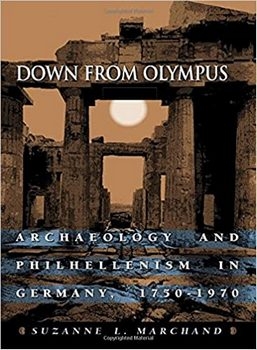
Название: Down from Olympus: Archaeology and Philhellenism in Germany, 1750-1970
Автор: Suzanne Marchand
Издательство: Princeton
Год: 2003
Страниц: 427
Язык: English
Формат: True PDF
Размер: 70 MB
Since the publication of Eliza May Butler's Tyranny of Greece over Germany in 1935, the obsession of the German educated elite with the ancient Greeks has become an accepted, if severely underanalyzed, cliché. In Down from Olympus, Suzanne Marchand attempts to come to grips with German Graecophilia, not as a private passion but as an institutionally generated and preserved cultural trope. The book argues that nineteenth-century philhellenes inherited both an elitist, normative aesthetics and an ascetic, scholarly ethos from their Romantic predecessors; German "neohumanists" promised to reconcile these intellectual commitments, and by so doing, to revitalize education and the arts. Focusing on the history of classical archaeology, Marchand shows how the injunction to imitate Greek art was made the basis for new, state-funded cultural institutions. Tracing interactions between scholars and policymakers that made possible grand-scale cultural feats like the acquisition of the Pergamum Altar, she underscores both the gains in specialized knowledge and the failures in social responsibility that were the distinctive products of German neohumanism.








